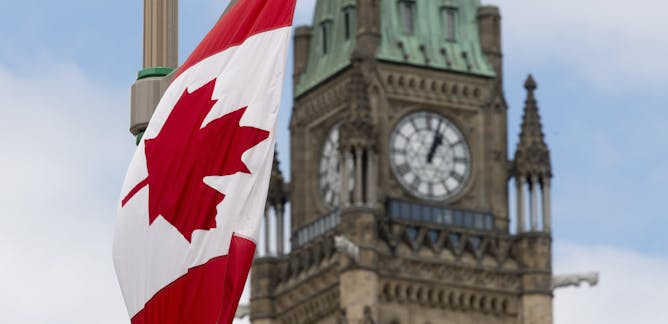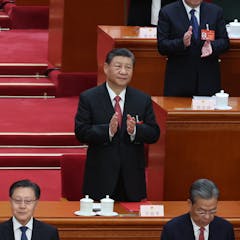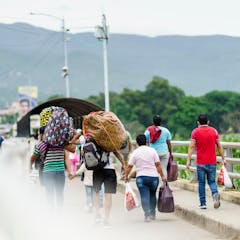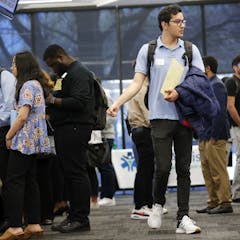
Artikel-artikel mengenai Economic growth
Menampilkan 1 - 20 dari 316 artikel

Drawing on insights from their recent book, two academics shed light on why Canada’s anemic growth should be a cause for concern.

Modi has aimed to improve the lives of ordinary Indians, but some are still finding jobs hard to come by.

From an economic development perspective, the highly skewed nature of AI activity in the US is likely to create large pools of high-skilled workers in some regions while leaving other regions behind.

Different taxes affect investment in different ways.

The US economy relies on immigrants to fill jobs, but many of them are struggling with high rent burdens that make it harder to build productive lives and integrate into their communities.

China is facing many economic obstacles, but Beijing remains optimistic about growth.

More than 6 million people have fled Venezuela seeking better living conditions – now they are boosting economic growth in their host countries.

War is taking a toll on Israel’s economy.

This obsession with economic growth is destroying our planet. We must rethink private ownership of land – that’s where it all went wrong.

The lack of large, global European tech leaders might actually be a blessing.

India needs to follow a path akin to China’s to find answers to its job woes.

Students should know that a key part of the value of their undergraduate degree lies in taking advantage of all the opportunities for learning that universities offer.

Some of the scenarios are optimistic. but the one I think is most likely isn’t. It’s a return to the stagnant world we had before COVID.

The historical correlation between economic prosperity and increased life expectancy might suggest that growth is generally a good thing. However, other evidence points to the downside of growth.

Market expectations for rate cuts sooner rather than later have been dashed but some economies remain in danger of recession.

Cash transfers have emerged as an essential part of social protection systems globally, most recently during COVID lockdowns.

Society’s wealthiest are responsible for generating climate change – but who are these people, and why are their emissions so high?

The largest lake in the UK and Ireland has been blighted by toxic blue-green algae.

Economists do not have the analytical tools to properly measure the full value of a megaproject. Deciding on whether to pull the plug or not is always a political matter.

Far from finding an ‘ageing time bomb’, the report paints a picture of a society in which the ratio of working Australians to dependents is little changed, with climate change the only big concern.
